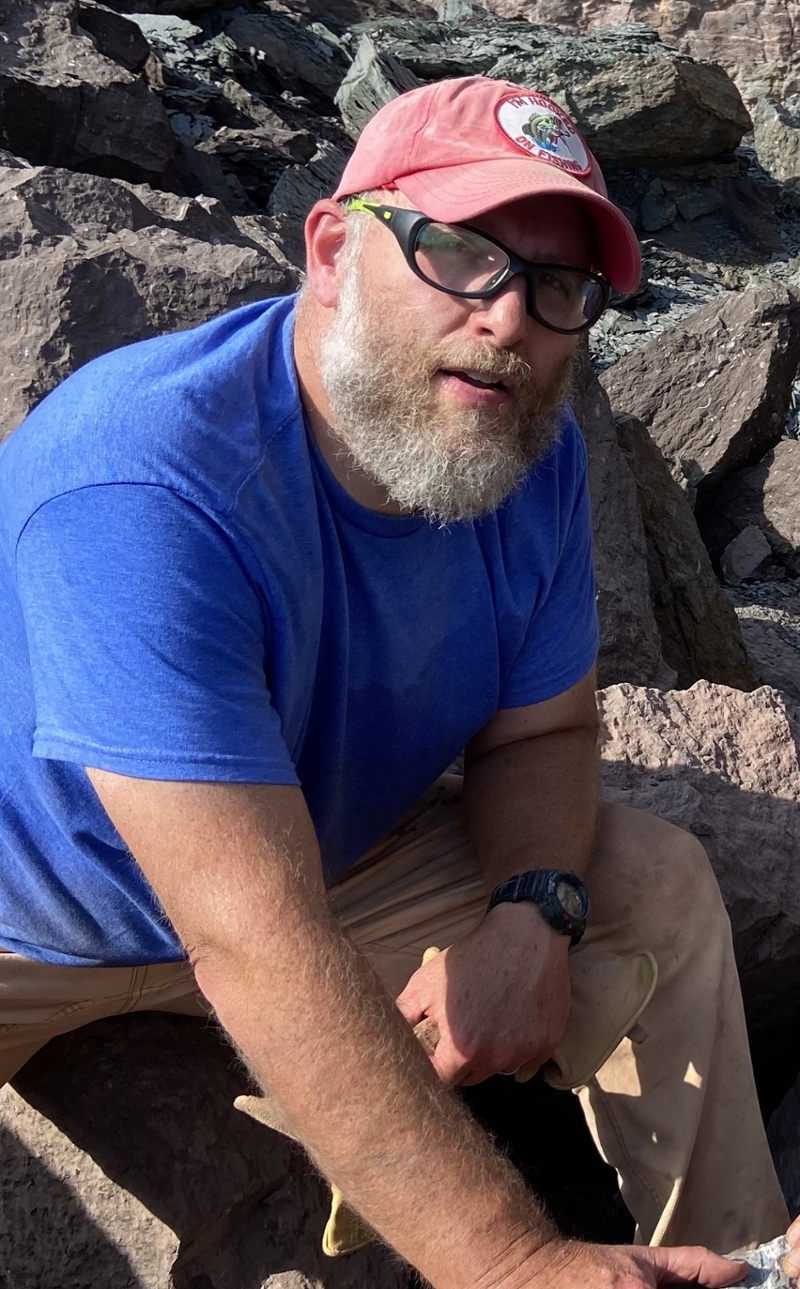
Broussard
Download Image: Web
The National Science Foundation (NSF) has awarded a $148,000 grant to Lycoming College’s David Broussard, Ph.D., associate professor of biology, for work on a project entitled, “Silty streams and diluted seas in the Late Devonian Appalachian Basin: Probing the effects of early icehouse extremes on vertebrate paleogeobiology.” Through this work, Broussard hopes to advance our understanding of ancient climate change and its impacts on vertebrate animals that lived hundreds of millions of years ago.
To help promote awareness of earth science and paleontology-related career paths, the NSF grant also enables rural community public outreach through educational field events, such as fossil digs and programming in local schools. Additionally, Broussard’s team will create a new fossil display at Clyde Peeling’s Reptiland that will highlight Devonian fossils found in northern and central Pennsylvania. Located in nearby Allenwood, Pa., Reptiland offers an educational adventure with reptiles and amphibians from around the world in naturalistic habitats. The display promises interactive features that will help bring the Devonian period to life for the world-class zoo’s 65,000 annual visitors.
Broussard, whose area of expertise lies within vertebrate paleontology, paleoecology, and natural history, explained that at the end of the Devonian Period, about 360 million years ago, the Earth experienced a cooling climate that heavily impacted life on earth at that time. The causes of this biodiversity crisis that led to the extinctions of numerous animals are poorly understood compared to the other “big five” mass extinctions recorded throughout Earth’s history.
“This project will test the mechanistic link between climatic extremes and changes in vertebrate habitats at the time,” said Broussard. “We will collect and analyze data in the field and lab from rock and fossil samples, both from surface exposures and from the subsurface (rock cores). This work will advance our understanding of how ancient climate change negatively impacted habitats and therefore the animals living in these habitats during that time.”
“With many relevant sites and fossils, our area is rich in Devonian geology and fossils that underly much of the rural landscape,” said Broussard. “It makes the northcentral Pennsylvania region one of the best places in the world for these types of research projects.”
The grant will provide opportunities for six Lycoming students to gain experience in fieldwork and research over the three-year life of the grant, including two internships each summer beginning in 2026 — experiences that are critical to gaining admission to graduate programs and securing related employment following graduation.
Broussard’s work is part of a broader project involving faculty members from Bucknell University, George Mason University, and Rowan University.
Lycoming College’s biology program provides a cutting-edge curriculum that actively engages students in studying the diversity of life, while giving them the analytical skills to answer tomorrow’s questions. From the moment they step into their first biology class, students benefit from experience with advanced instrumentation in labs and are invited to become involved in active research so they can develop their skills over all four years. The biology program’s innovative coursework prepares students for professions in the fields of research, education, healthcare, neuroscience, biotechnology, and the environment, and students are provided opportunities for internships and co-curricular professional experiences, collaborative student-faculty research, and exposure to first-rate biological instrumentation. More information is available at https://www.lycoming.edu/biology/.